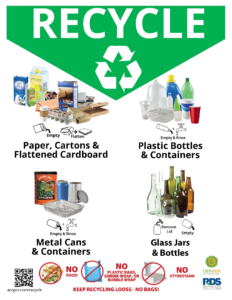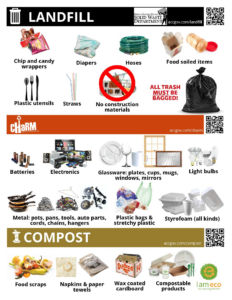What can I recycle on campus?
UGA collects recycling in blue-colored, single-stream or “mixed recycling” containers throughout campus. Items placed in these bins are taken to Athens-Clarke County facilities for processing and distribution to various end markets to become new products.
Please visit ACC Solid Waste – Waste Reduction Division for the most up-to-date information about what can – and cannot – be recycled in mixed recycling bins on campus.


